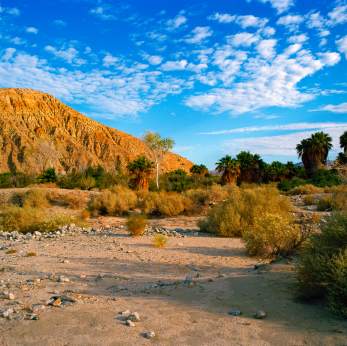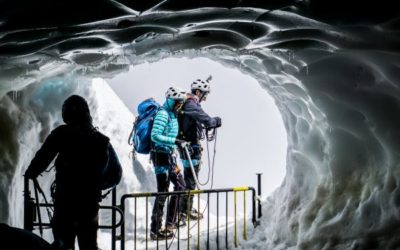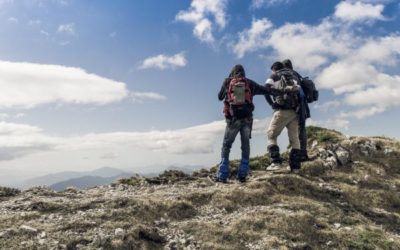Why be so concerned about the dried-up streams when the rivers of living water are so available? (Francois Fenelon, Let Go)
He cuts off every branch in me that bears no fruit, while every branch that does bear fruit he prunes so that it will be even more fruitful. (John 15:2)
Spending time in the outdoors is an incredibly eye-opening experience in that God’s Creation is full of illustrations that can teach us about deep spiritual realities. This reflection highlights two very common outdoor illustrations: 1) dried-up intermittent streams, and 2) dead branches.
MOMENTS OF JOY & MONTHS OF EMPTINESS?
Followers of Christ are to be an alternative culture, preoccupied with getting glory for God. Yet live in an “it’s all about me” culture that swipes and grabs glory for self. No wonder we ebb and flow between feeling moments of joy and months of emptiness. The spiritual life that Jesus invites us into is one of abandoning ourselves so that we can obtain the wholeness of life. Abandonment and death to self is the key to being able to what the Apostle Paul called, “rejoicing always (see Phil. 4:4)” and experience what Jesus calls the “abundant life (see John 10:10).”
THE TRAP OF DISCONTENTMENT
Addressing this common dilemma of discontentment is one of the reasons why I love wilderness ministry so much. Wilderness experiences have a way of making apparently “boring” doctrines fresh and relevant again through experiential learning. Wilderness allows us to escape the prisons of self-promotion and self-gratification. Somehow the desolation and loneliness of the wilderness reminds us how to drink deeply of the Living Waters of God rather than stomping our feet and whining about the dry stream beds of joyless busyness we often feel in our self-pleasing, idol-worshiping lives back at home. This issue is crucial to get right. It was actually one of the central aspects of the Apostle Paul’s theology on how spiritual death leads to spiritual life.
Francois Fenelon was the spiritual advisor to a handful of Christians who sought spiritual guidance as the were working in a shamelessly immoral environment. One of my favorite letters that Francois wrote was in response to one his apprentices about the question, “how to endure a season of suffering without losing heart?” The letter is entitled, The Death of Self. His letter reminds me of tangible teachable moments in the wilderness where the difficult terrain or exposure to weather conditions in the wilderness have been an anvil upon which Christ has lovingly corrected me like a refiner’s fire lifts the dross to the top to be cleaned out.
DEEP CALLS TO DEEP
The Bible teaches that “deep calls to deep (see Psalm 42:7).” That means that God calls us on an inner journey that goes way beneath the surface issues that preoccupy our attention. C.S. Lewis describes this inward journey toward deeper intimacy with God this way:
I have come home at last! This is my real country! I belong here. This is the land I have been looking for all my life, though I never knew it till now…Come further up, come further in! ― C.S. Lewis, The Last Battle
FAIR WARNING
Reading Francois Fenelon’s letter will call you deeper as well. But I’m warning you, don’t read this letter unless you want to journey further in!
ACTION STEPS
- Read Francois Fenelon’s letter, The Death of Self and spend some time on the reflection questions at the end of his letter.





